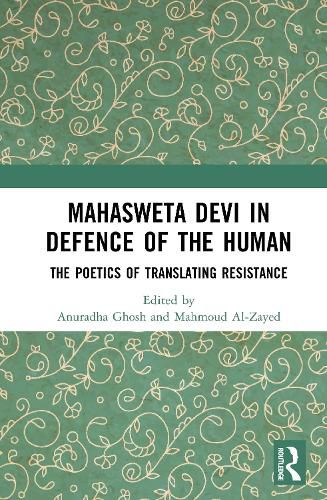Readings Newsletter
Become a Readings Member to make your shopping experience even easier.
Sign in or sign up for free!
You’re not far away from qualifying for FREE standard shipping within Australia
You’ve qualified for FREE standard shipping within Australia
The cart is loading…






This book re-thinks the literary and social worlds of Mahasweta Devi, the prolific and influential writer and social activist, in connection to her praxis. It brings into focus Devi's preoccupation with the human, nature and life, and unwritten or distorted histories that underline her poetics of translating resistance in terms of a radical alterity.
The defining feature of Devi's writings is the position she adopts in defence of the human, questioning the nature of the 'abject' in her discourse on the oppressed. Essays in this volume focus on her subversive retellings from the Mahabharata, the political aspects of translation/adaptation of her works in literature, cinema and visual arts and comparative readings of her works by women authors from the Global South as well as the Indian diaspora. They examine her early publications, her writings for children, and the notion of aesthet(h)ics, i.e., ethics and/in aesthetics, as a gesture to pave forward a discourse on liberation and social justice that remains a challenge for the world.
The book will be of significant interest to scholars and researchers of postcolonial and decolonial studies, critical translation and adaptation studies, comparative literature, the visual arts, myth and folklore studies, gender and sexuality studies, caste and ethnicity studies, culture studies, ethics in/and aesthetics, activism studies, democratic and indigenous rights discourse, South Asian studies and Global South studies.
$9.00 standard shipping within Australia
FREE standard shipping within Australia for orders over $100.00
Express & International shipping calculated at checkout
This book re-thinks the literary and social worlds of Mahasweta Devi, the prolific and influential writer and social activist, in connection to her praxis. It brings into focus Devi's preoccupation with the human, nature and life, and unwritten or distorted histories that underline her poetics of translating resistance in terms of a radical alterity.
The defining feature of Devi's writings is the position she adopts in defence of the human, questioning the nature of the 'abject' in her discourse on the oppressed. Essays in this volume focus on her subversive retellings from the Mahabharata, the political aspects of translation/adaptation of her works in literature, cinema and visual arts and comparative readings of her works by women authors from the Global South as well as the Indian diaspora. They examine her early publications, her writings for children, and the notion of aesthet(h)ics, i.e., ethics and/in aesthetics, as a gesture to pave forward a discourse on liberation and social justice that remains a challenge for the world.
The book will be of significant interest to scholars and researchers of postcolonial and decolonial studies, critical translation and adaptation studies, comparative literature, the visual arts, myth and folklore studies, gender and sexuality studies, caste and ethnicity studies, culture studies, ethics in/and aesthetics, activism studies, democratic and indigenous rights discourse, South Asian studies and Global South studies.